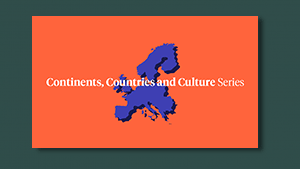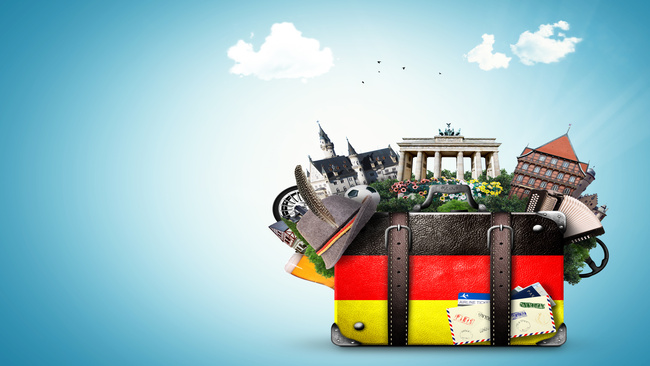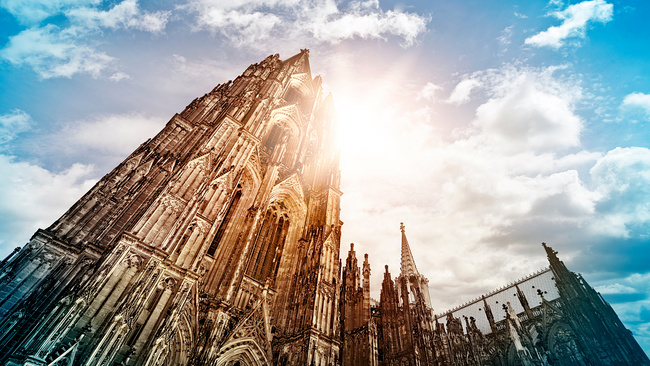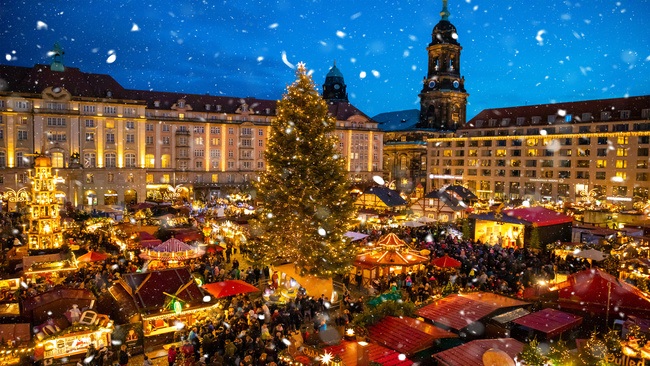Germany Culture, Customs, and Traditions

Germany is a country with a rich culture shaped by various historical events such as the Holy Roman Empire and the two World Wars. It is famous for its hearty cuisine, producing popular dishes such as pork sausages and sauerkraut and celebrating traditions such as Oktoberfest, a global beer festival attracting millions of visitors each year. Furthermore, Germany is well known for its contribution to the arts and philosophy, producing iconic figures such as Nietzsche, Beethoven, and Bach.
Located in central-western Europe, Germany is bordered by nine countries: Denmark, Poland, the Czech Republic, Austria, Switzerland, France, Luxembourg, Belgium, and the Netherlands. The country is also positioned between the North and Baltic Seas, making it a major transportation and business hub in Europe. We explore its culture, customs, and traditions below.
Germany Population
 Germany is one of Europe’s most populated countries, with a population of 83,309,134 (February 2023). The population is diverse due to a mix of native Germans and immigrants from countries such as Romania, Poland, Bulgaria, and Turkey. Despite the country’s large population, Germany has a low population growth rate and an increasing aging demographic, with 37.6% projected to be over 60 years old by 2050.
Germany is one of Europe’s most populated countries, with a population of 83,309,134 (February 2023). The population is diverse due to a mix of native Germans and immigrants from countries such as Romania, Poland, Bulgaria, and Turkey. Despite the country’s large population, Germany has a low population growth rate and an increasing aging demographic, with 37.6% projected to be over 60 years old by 2050.
Berlin is by far the largest city in Germany and is populated by approximately 3.52 million people, followed by Hamburg (1.79 million) and Munich (1.45 million). Each city has a unique character and history, attracting millions of visitors every year.
Languages of Germany
German belongs to the Germanic branch of the Indo-European language family and is the official language of Germany. Over 95% of the population communicates in the standard form of German. However, a range of regional dialects, including Bavarian, Danish, and Romani, is still spoken in some parts of the country. Languages such as Turkish, Greek, Polish, Russian, and Arabic are also spoken due to Germany’s diverse immigrant population.
Religion in Germany
Around 52.7% of Germany’s population is Christian making it the largest religion in the country, and half of these Christians are Catholics. There is also a growing Muslim population and smaller communities of Jews, Buddhists, and Hindus.
Germany’s laws state that people can worship as they wish, and the culture here happily accepts all religions. However, the country has faced a few challenges recently, particularly with Muslim immigrants. But even so, religion is a big part of Germany’s uniqueness. Different religions have left their marks on the country’s history and culture and still play an important role today.
Family Life in Germany
In Germany, it is all about keeping things equal in family life – both the mother and father are expected to contribute to childcare with the help of a solid system, and parental leave is offered to help support the whole family. Education is also a big factor, with parents working hard to ensure their children get the best start in life. Times have changed and so have family dynamics – from mothers or fathers who raise their kids alone to stepparents and beyond. Either way, family values are essential in shaping how Germany moves forward as a society.
German Art and Architecture
 Germany boasts a rich and varied art and architecture history which has been heavily affected by political, cultural, and economic factors. The country’s architecture has embraced design and innovation throughout the years, from the old-school Medieval Gothic cathedrals to the more modern Bauhaus movement of the 20th century. German art is just as diverse, showcasing Expressionist pieces from famous painters like Emil Nolde and Max Beckmann, as well as ancient wood carvings and Gothic altars.
Germany boasts a rich and varied art and architecture history which has been heavily affected by political, cultural, and economic factors. The country’s architecture has embraced design and innovation throughout the years, from the old-school Medieval Gothic cathedrals to the more modern Bauhaus movement of the 20th century. German art is just as diverse, showcasing Expressionist pieces from famous painters like Emil Nolde and Max Beckmann, as well as ancient wood carvings and Gothic altars.
When it comes to music, Germany has produced some iconic and world-famous composers such as Bach, Beethoven, and Mozart. On top of that, the country throws epic music festivals like Rock am Ring, which brings together artists and musicians from all over the world.
German Food
The cuisine of Germany is both delectable and satisfying, as Germans derive immense pleasure from consuming a variety of foods such as bread, sweets, frankfurter hot dogs, pickled cabbage, and potatoes. Additionally, the beer holds a significant place in their culture, which is evident from the world-renowned festival of Oktoberfest which is entirely dedicated to the drink.
When Germans prepare their meals, they tend to emphasize simplicity by using fresh, seasonal ingredients. In the southern regions, spätzle and schnitzel are favored dishes, whereas up north, smoked fish and soups are relished. The country’s reputation for having a strong culinary scene is balanced by its prioritization of environmental concerns and endeavor to integrate healthy and sustainable ingredients.
German Fashion
Germans love functionality, quality, and attention to detail. They’ve been crafting clothes and accessories for many years – especially with fabrics and leather, and this has undoubtedly aided their success in the fashion industry.
German-based brands such as Adidas, Escada, and Puma are recognized across the world for their innovative style and high-quality products. In more recent years, Germany has become a hub for eco-friendly and sustainable fashion, resulting in the rise of many designers and brands focusing on environmentally conscious manufacturing and production.
Germany is also famous for its vivid traditional outfits known as Tracht, which first appeared in the 18th and 19th centuries. Formally worn as an indicator of someone’s social class, people all over Germany now wear them to symbolize the country’s culture and pride.
Doing Business in Germany
Germany’s economy is one of the largest and most stable in the world, making it an attractive market for new businesses and investors. Its business culture is well known for its strong work ethic, attention to detail, strict compliance with rules and regulations, and focus on quality and reliability.
Even though English is regularly used in business settings, having a basic understanding of Germany’s language and culture is a big advantage. A strong reputation, direct communication, and punctuality are also highly valued when doing business in Germany.
German Holidays and Celebrations
Germany celebrates several holidays and celebrations throughout the year. These include:
 New Year’s Day (January 1)
New Year’s Day (January 1)- Epiphany (January 6)
- Good Friday (Friday before Easter Sunday)
- Easter Sunday and Easter Monday (dates vary)
- International Workers’ Day (May 1)
- Ascension Day (Thursday, 40 days after Easter)
- Whit Sunday and Whit Monday (dates vary)
- German Unity Day (October 3)
- All Saints’ Day (November 1)
- Christmas Eve and Christmas Day (December 24 and December 25)
- Boxing Day (December 26)
Common German Language Expressions
There are many popular expressions in the German language, including:
- Hallo!: Hello!
- Guten Morgen!: Good morning!
- Wie geht es dir?: How are you?
- Mir geht es gut, danke.: I’m fine, thank you.
- Ich heiße…: My name is…
- Woher kommst du?: Where are you from?
- Ich komme aus…: I’m from…
- Ich verstehe nicht.: I don’t understand.
- Entschuldigung!: Excuse me!
- Bitte!: Please!
- Danke!: Thank you!
- Gern geschehen.: You’re welcome.
- Bis bald!: See you soon!
- Auf Wiedersehen!: Goodbye!
- Prost!: Cheers!
These are just a few of the many expressions used in German, and the list can vary based on region and dialect.
Translation for German Market
Over 95 million people speak German worldwide, so German translation is always in high demand. Whether translating marketing materials, product manuals, or legal documents, German translation services can help bridge the language gap to improve communication and reach a wider audience.
If you want to expand your business in German-speaking countries, GPI’s talented German translators will gladly assist you across a wide range of translation projects.
